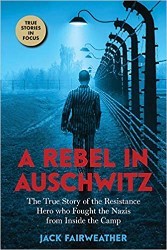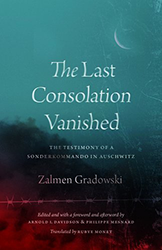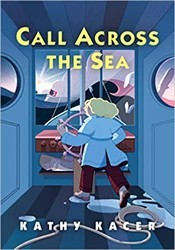Holocaust Hero: The Life & Times of Rudolf Vrba is the first of historian Alan Twigg’s two-volume biography of Rudolf Vrba (né Walter Rosenberg), best known for escaping Auschwitz-Birkenau with Alfred Wetzler in January 1944. While there are many existing published accounts of Vrba’s life, including his own memoir, Twigg adds new voices and previously undisclosed details to Vrba’s story that complicate widely accepted beliefs about the nature of his escape.
Focusing primarily on the first twenty-one years of Vrba’s life, during which he survived twenty-four near-death experiences, Twigg draws on sources from the FDR Presidential Library and his own interviews with Vrba’s friends, family, and wife. While Twigg reveals Vrba’s courage, grit, and refusal to remain powerless in the face of oppression, he also reveals previously unknown facts about the nature of Vrba’s escape that undermine the notion that he and Wetzler were true “escape artists.” By amplifying Vrba’s own warnings about the dangers of clinging to simplistic narratives about the past, Twigg reminds readers of the importance of confronting history in all its complexity and ambiguity.
One highlight of this book is Twigg’s focus on the delivery and impact of Vrba and Wetzler’s eyewitness report, which they dictated to the Slovak Jewish Council in April 1944. This report became part of the Auschwitz Protocols, which, together with two other eyewitness reports, provided some of the first direct evidence of the full extent of the Nazis’ genocide. Twigg also reveals Vrba’s sharp criticism of world leaders, including members of prominent Jewish organizations, for failing to act on the report’s urgent warnings about the impending deportation and murder of Hungarian Jews.
By devoting significant space to discussing how Vrba’s story was transmitted, Twigg prompts us to reflect on the difficulty of demarcating the line between fiction and nonfiction in the process of recording and transmitting history. For example, Twigg notes that Vrba’s memoir did not adequately credit the Russian Jew Mordecai Cytryn and his three other co-escapees for conceiving of Vrba and Wetzler’s escape plan. However, Twigg notes that perhaps this is because Vrba’s cowriter, journalist Alan Bestic, was more interested in providing readers with drama and action than meticulous detail. Further, although Vrba, who eventually became a biochemist, referred to the Vrba-Wetzler report as his “first scientific document,” the report does not record the truth in purely objective terms. Indeed, he and Wetzler were instructed to avoid predictions and opinions and to omit anecdotes that would cause readers to experience undue distress. Further, the original Slovak version of the report has been lost, and it is possible that details were lost in the process of translating it into German, Hungarian, and English.
Holocaust Hero is more than a biography of an important and controversial figure in Holocaust history; it is a book about storytelling itself. It illuminates the challenges that arise when personal accounts of the Holocaust are transmitted over time across diverse media, translated into different languages, and shaped by editorial pressures that do not always prioritize truth. Simultaneously, the book underscores the imperative to continue telling the stories of figures like Vrba, whose experiences complicate but ultimately deepen our understanding of the Holocaust.




